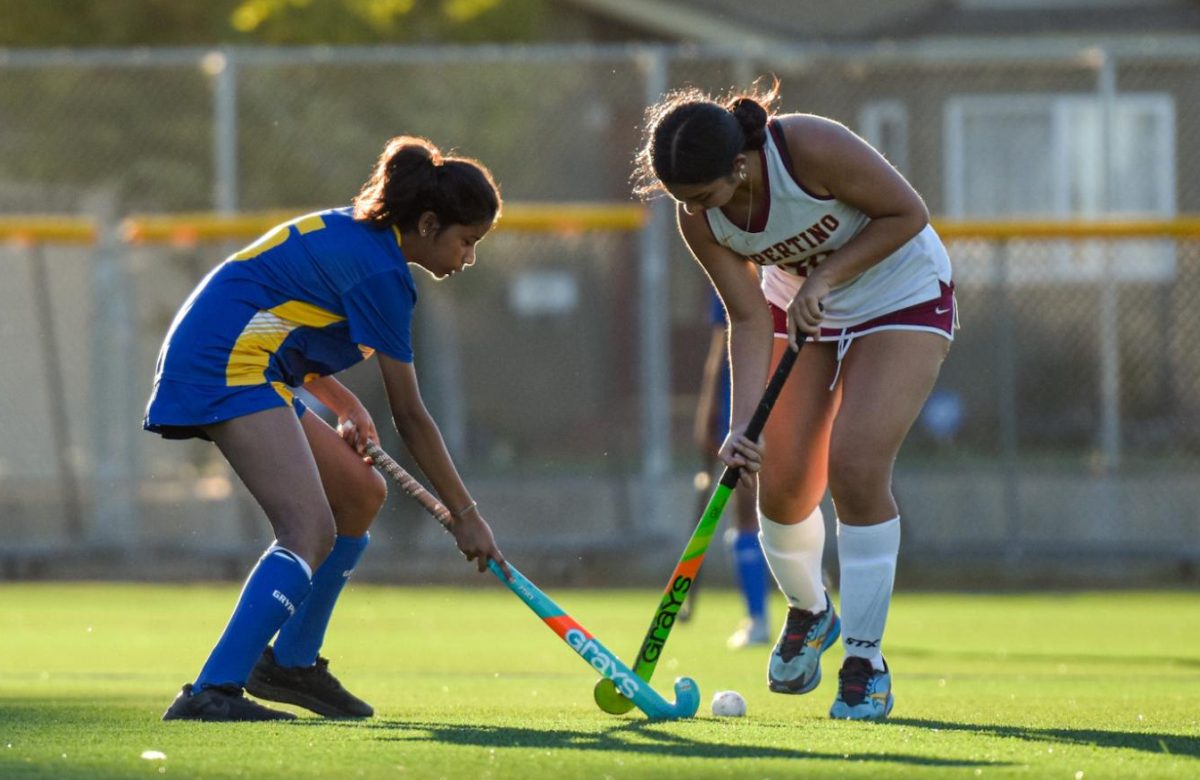SCHS sports teams consist of a wide range of players, coming from diverse backgrounds, grade levels and skill sets. Each player brings a new perspective and unique abilities that make a team shine. Despite each player being essential to a team, some may feel an inferiority to their teammates because of their later introduction to the sport.
This challenge of starting a sport is one that many students with no prior athletic experience face. For sophomore Anwitha Aruva, starting field hockey in her second year of high school meant that she had to learn years of skills other players had developed in childhood.
“People who grew up playing sports in elementary school, they were learning how to play a sport the same time that they were learning how to ride a bike,” Aruva said. “It kind of becomes part of their nature, and they develop really strong fundamentals, whereas you’re learning it (a sport) later in life and starting from scratch.”
For discus thrower junior Annika Agarwal, it helped to go into her sport with no expectations, allowing her to focus on improving her skill rather than comparing herself to others.
“Starting at such a late age… learning in such a short amount of time, it’s obvious that I won’t be very good,” Agarwal said. “Even though I wasn’t good at it at first, I still tried to stick with it for as long as I could. I had the passion to continue.”
Boys water polo coach Gene Kendall is familiar with persistence in his athletes. Most of them start with no prior experience in the sport but are determined to play and acclimate to the water.
“This year for example, I have ten or eleven freshmen, and only one had ever played competitively before,” Kendall said. “By the end of the season, everybody was kind of in love with it, and everybody was having a ton of fun and really enjoying their time with the sport.”
To achieve this, Kendall focuses on creating an environment where players feel supported no matter their skill level.
“I’m super open and willing to teach the game from scratch for everybody,” Kendall said. “We do a lot of work on foundational skills.”
Many new athletes also find the community and friendships they build with their teammates a rewarding part of sports. For Agarwal, the friends and memories she made were another reason to continue participating in track and field.
“My friends helped me get into it, and I made more friends as I met more people,” Agarwal said. “I became really attached to them.”
This sense of community also makes the learning struggle worthwhile for athletes.
“It was completely new – having to go to practice, learning in front of other people and being willing to embarrass yourself during the process,” Aruva said. “It’s really scary starting a new sport later because you’re comparing yourself to people who have been playing for years, but I think the pros just outweigh the cons.”
Vice principal Mark Bertron played multiple sports as a teenager. He is now a strong advocate for multi-sport participation and believes that playing different sports helps athletes develop a variety of skills, both physically and mentally.
“You diversify your movements, diversify your skills that you’re working on,” Bertron said. “And it’s a good way for your mind, so you’re not always doing the same thing as well.”
As these skills build on each other, starting just one sport can open up many more. After field hockey, Aruva began playing badminton.
“Playing field hockey, the thrill of the games and team experience was just really rewarding,” Aruva said. “I have a lot of friends in badminton. They helped me pick it up, and we started playing together.”
Starting sports late can make the overall experience more enjoyable. Most of Kendall’s players are not interested in becoming college level athletes but rather want to have fun playing with the team.
“We try to build on little successes. We really try and celebrate people’s accomplishments, even on the little things so that they feel rewarded for being there,” Kendall said.
Bertron believes that persistence and hard work is the key to improvement. Although starting late is intimidating, it is not impossible.
“Forget the mistake. Remember the lesson,” Bertron said. “You’re not going to be successful in the beginning… just be persistent at it.”


